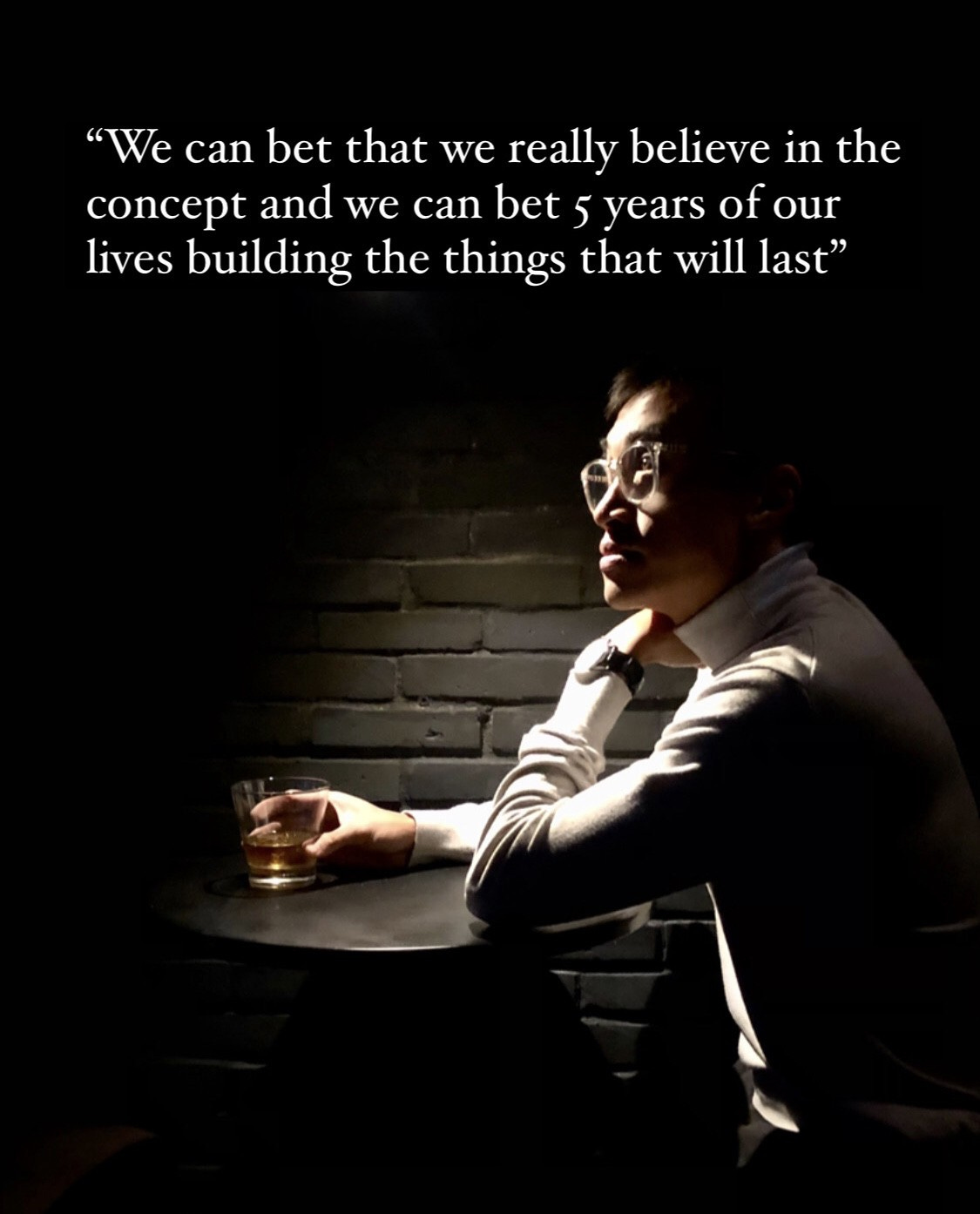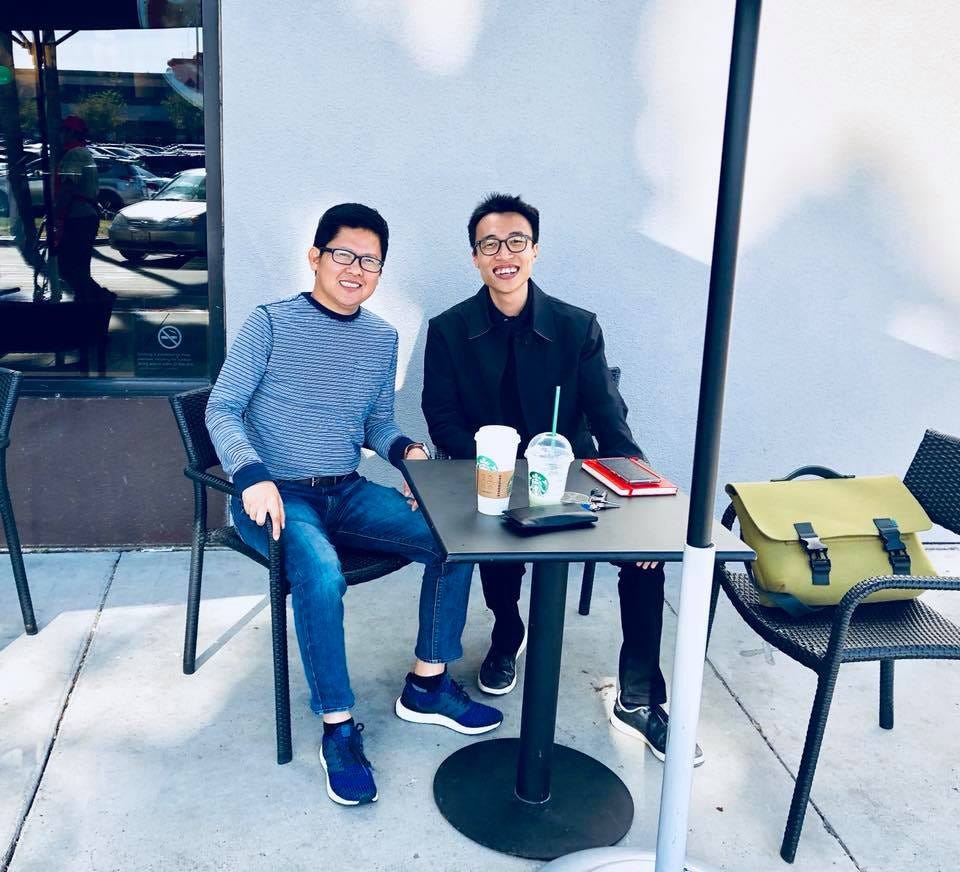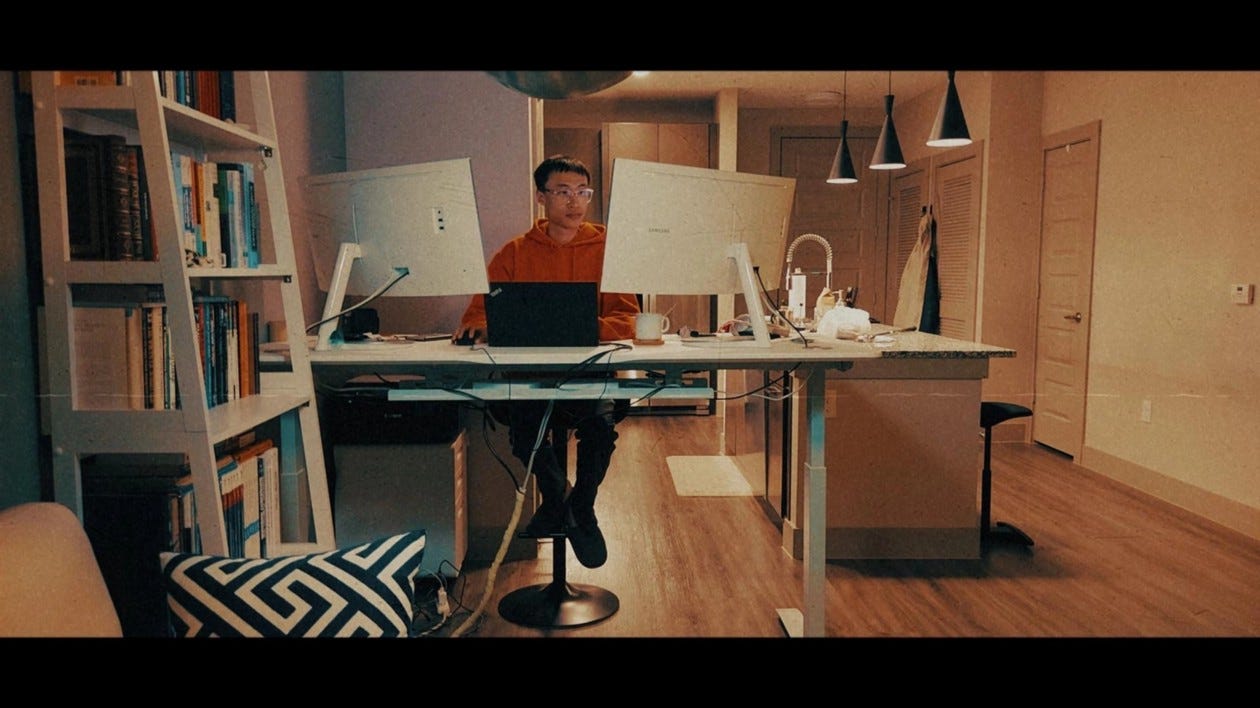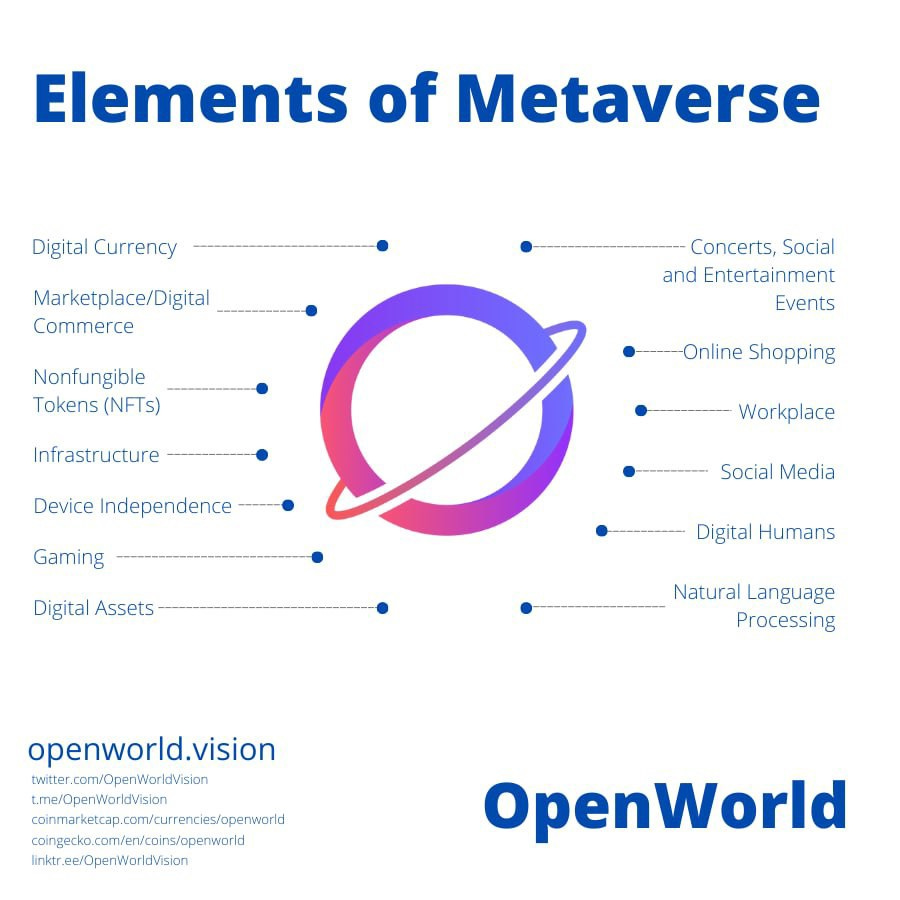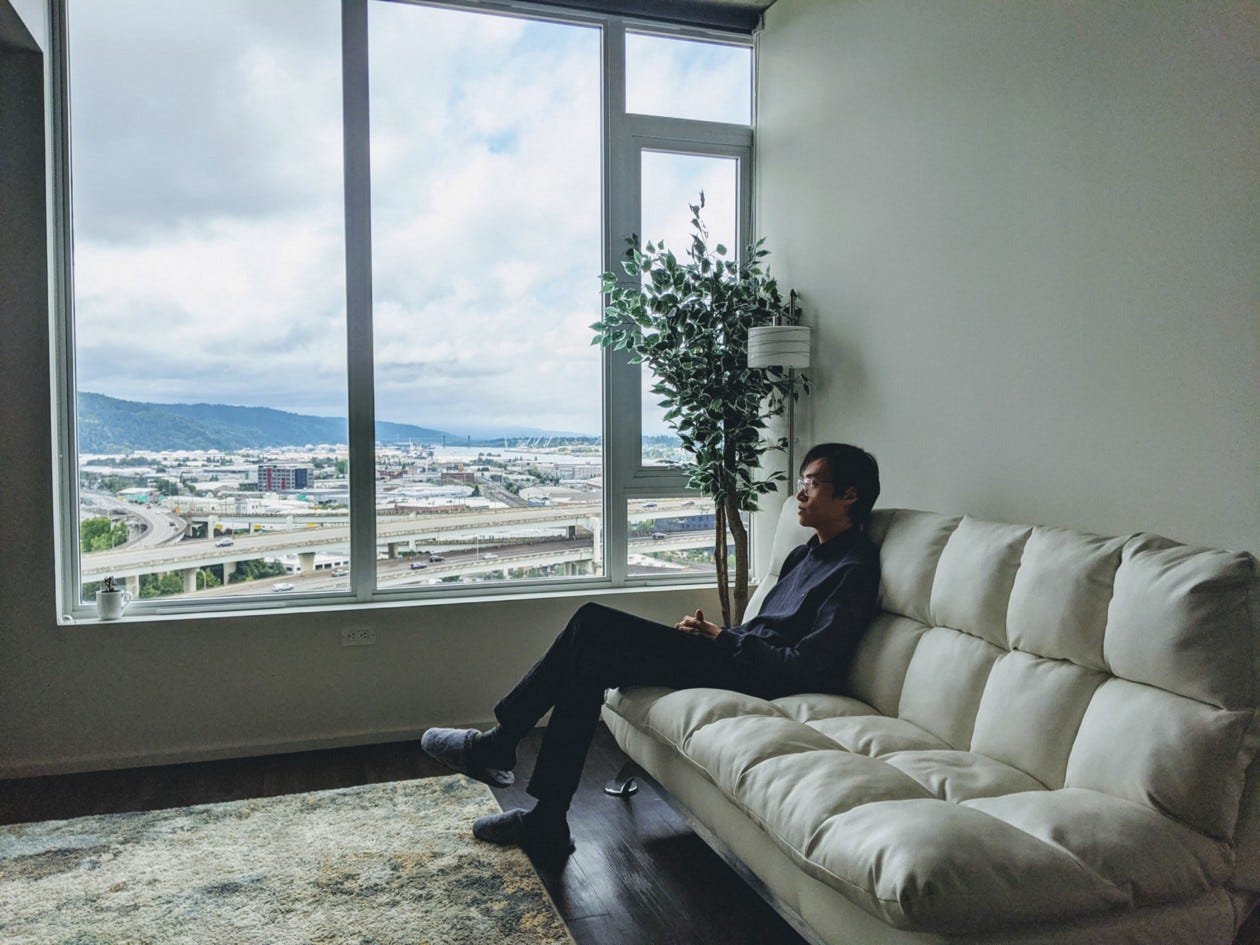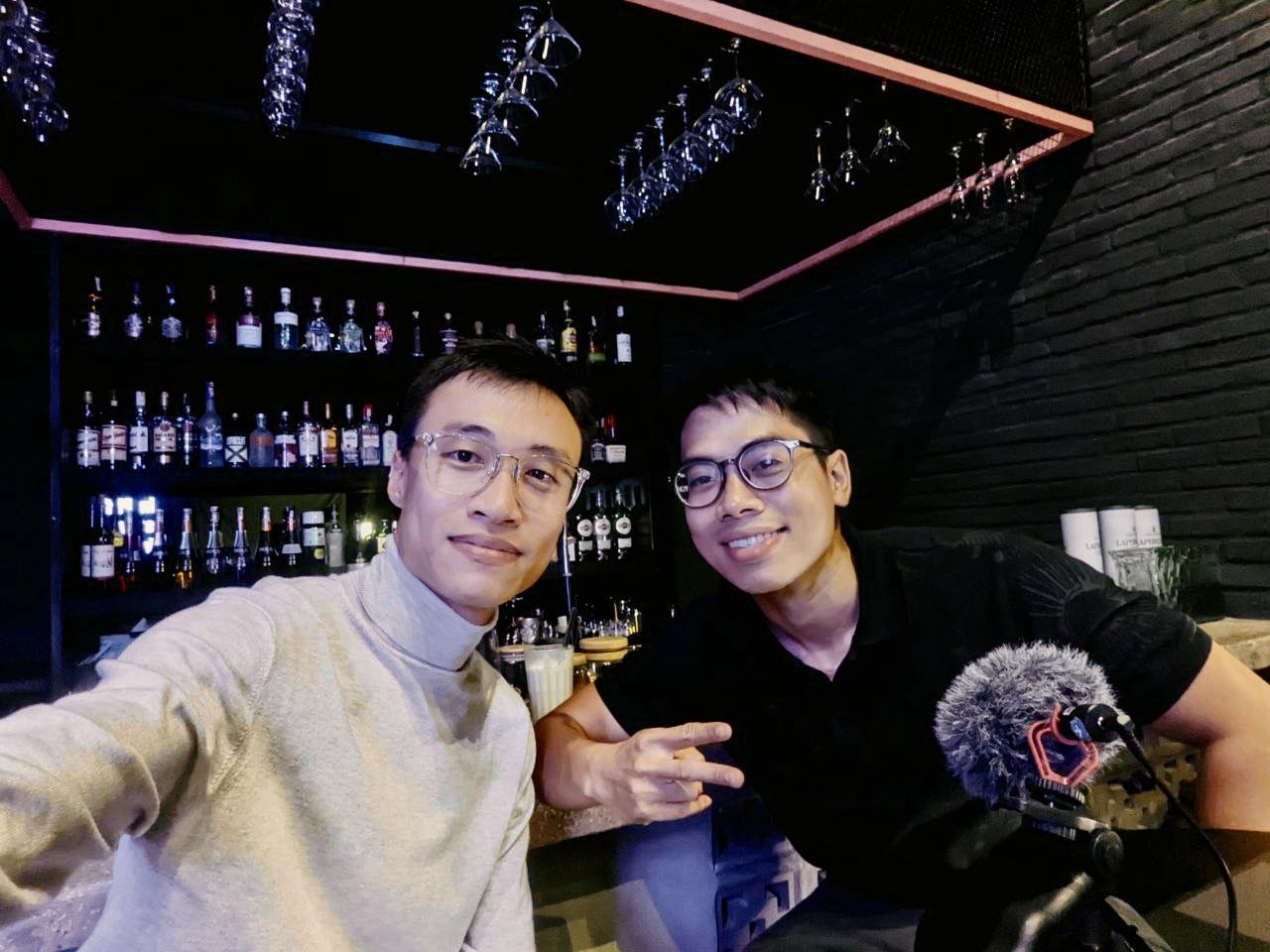Hello, everyone. My name is Dee, and I’m the community leader. This is the first episode in a series of meetings with members of the OpenWorld team. We’re going to listen to their stories, and the first one is Mr. Tri Ton, our Co-CEO, so let’s hear him out!
Tri Ton: Hi everyone, glad to be here!
Dee: Thank you for joining us. We’re in a pretty hidden bar in Saigon, Vietnam. So Tri, what is your role in OpenWorld and what do you do on a daily basis?
Tri Ton: I’m the Co-CEO of OpenWorld. I have 3 big parts tojob.
First of all, I want to bring the best people to work on this project, especially the leadership team.
Secondly, I want to make sure that we spend time and do the right things. We can bet that we really believe in the concept and we can bet 5 years of our lives building the things that will last.
Thirdly, I want to make sure that we have enough funding for the project to last and become fruitful.
Those are the three main concerns that I have.
Dee: Well, that’s a bit too fast there. Let’s first start with how you fell into the OpenWorld.
Tri Ton: First of all, we shifted into OpenWorld from a project named CryptoWar xBlade, and it was a GameFi Play-To-Earn kind of game. When we built the game, we had a good community and good interactions, we had a game and people played there. We got 66000 transactions and sold a couple of thousand NFTs.
However, as time and data pass, we realize that the P2E model is not a sustainable business model.
Because when the gamers play, the interaction of the gamers in the game, they click, and they make money.
But that clicking doesn’t generate any value. The source of the money doesn’t have a sustainable source. Because of the stakeholders of the game, we have the game developers, (which is us) — The community (the gamers), and the third one are the investors who invested in the project.
The money that the gamers earn has to come from one of the three. We are entrepreneurs, so we don’t have the money to pay for the gamers to play, and the investors want to bet on the project and want the project to grow. The project needs to bring in the cash flow, not the other way around where their money gets paid to the gamers.
And lastly, when the gamers play, they get earned, so the question is who will be paid?
When I think really hard about that question, I believe that the financial model of GameFi doesn’t work, and so we shifted into building a digital world where the gamers go there and have a digital experience and they kind of represent themselves in that world. That will be a parallel reality to the reality we have, parallel to the actual reality. Then we will have real interaction in reality, and that interaction should create value rather than just click and play and win from other people.
When that activity has value, they can get paid, so that will be the core of value creation. When they get paid, the payment will be from other participants. They receive value, so they pay.
It actually solves the question of who pays the GameFi and I think we already have reality for a thousand million years. We have had this IT Revolution for the past fifty years, and so it’s a good time for humanity to build a digital reality.
Digital reality is something that makes sense and comes with history. This is what makes me high about this project. We have had private property ownership for about 500 years since capitalism, and now we have the NFT, which is Blockchain-enabled digital ownership.
That enables the digital economy and that will create a digital economy on top of the real economy. We have reality and then we have digital reality. We have an economy, then we have a digital economy.
I think this is the kind of idea that will last because we are not afraid of missing the trend. Like 5 years from now, nobody plays this thing or does this thing anymore.
This actually makes sense philosophically and historically. So that’s why we built OpenWorld.
Dee: Cool, so that is something you are solving a real problem and that problem will still be there in 5 or 10 years, not just a trending problem?
Tri Ton: It might be even longer than that. In reality, we humans have come into existence for like a million years, and we have had cognition for about 70,000 years, and we have had the agriculture revolution for about 10,000 years, the industrial revolution for 400 years, and the information technology revolution for probably 40–50 years. We have had that reality for so long but never have had a truly digital reality, something that goes beyond reality. This will be something we do for the next many years.
The thing is, it will just come, so we can’t resist it. We are in a position where we can form it. We are in a position where we can say what the digital world could look like, how the economy should function, and what should govern the digital reality. It will be a long, long play.
Dee: For normal people, it sounds like OpenWorld is a vast and huge digital world. If you could explain or describe OpenWorld in 3 words, what would they be and why?
Tri Ton For me, it would be a truly digital world because we used to have a digital world before. It is a digital world in the same way that World of Warcraft, Ultima Online, and Final Fantasy are. You go there, you play a role, you explore the world, you interact with other people, you have social relationships, and you can sell things.
But there is actually another reality that comes from this one. The thing with those worlds is that they don’t have a digital economy formed just yet. They don’t have digital ownership, true digital ownership, and that thing only comes with Blockchain.
The Blockchain only appeared 5 years ago, when Ethereum had the programmable Layer 1 protocol that allowed people to build things on top of it, and then the NFT things happened about 4 years ago, and then the GameFi. GameFi is cool because it helps increase awareness of blockchain technology, but GameFi needs to evolve.
Dee: So, just out of curiosity, why would you choose Metaverse as your next step away from GameFi? What chance does OpenWorld have of growing when there is Meta (Facebook), which is a major player?
Tri Ton: I think it depends on the way we look at things. There are 2 ways to approach Metaverses. The first is that you try to create another reality beyond the current reality by stimulating the human senses, like through the goggles with VR/AR, haptic suits, you have devices that help you smell things in the metaverse, just like you stimulate the senses of the participants and make them forget about the reality.
And the Web3 way of building the metaverse is through digital ownership, aka blockchain. Everyday digital things actually belong to Facebook (Web2), and the reason I think we should shift from GameFi to Metaverse is because Metaverse, as I explained before, makes sense historically and philosophically, and it will stay. Like all the trends in crypto, you see, it comes and goes. We want to be the ones who just keep building and building and not be afraid that it will stop and people will run out of the door and wonder if the thing won’t be sustained in the next 10–20 years. The more you look into the future, the more sense it will make. Of course, it is hard to build, but it is a concept that will endure.
Dee: when you say keep building, you didn’t keep building the CryptoWar though, so I guess you weren’t afraid of the loss aversion effect, you weren’t afraid to lose things.
Tri Ton: Yes, we have to move fast and we have to accept that we are wrong. I think we will make a lot of mistakes. We will pay dearly for those mistakes, but the earlier we go in the right direction, the earlier our operational effort counts because if you go in the wrong direction, even though you execute really well, you still build the wrong thing, and GameFi to me is that thing, so we had to be decisive.
Dee: What are the real problems that OpenWorld can solve in the future?
Tri Ton: OpenWorld is trying to solve many things that other Metaverse projects are possibly trying to solve as well. For example, let’s say DeFi, Decentralize Finance brings the financial application to the non-bankable people and, through playing games, they actually get involved in financial transactions on a micro-level which traditional finance cannot approach. One of the issues with DeFi is that you keep seeing DeFi projects get crushed down.
They lack the utility yield of the lending. Let’s say the traditional market, you know a lot of people in Web3 space called traditional market kinda sucks but we have to appreciate the role of the traditional financial market like when you go to the bank, you lend them money and they give you a modest yield like interest rate but what they can solve is they have a lot of use case for that money, they lend you the money to buy a car, buy mortgage which is house and credit card, they lend to the companies they lend to entrepreneurs, they fund the governments they even funding wars so they have a lot of use case for the money.
But in the DeFi space right now, they can solve the idea of borrowing. When you stake the coins, you get some yield, but they don’t have enough use cases for those capitals. So what happened is that because they don’t have the use cases to make even higher interest to pay back the high interest they already gave to the lender, what happened is that they have to give out more tokens so that the price of those tokens keeps going down.
And when we build the Metaverse, we will have people who go there to create things and get paid, and so they will treat that as a true job. A person from Nigeria can draw a beautiful shirt for a buyer from Korea, and people from India can sit in there with architectural skills and draw houses for someone in London to buy. This creates jobs worldwide and passes through all of the government layers and barriers like administrative barriers, foreign exchange kinds of things, and issues like logistics, in-land tracking, ocean freight tracking, container shortages whatsoever that the economy in the real world is facing right now.
As a result, it will have global implications for job creation, cross-border transactions, and digital value creation in digital space, and it will create entrepreneurs in that space, and those entrepreneurs will need money to do business in order to hire more people who work in the metaverse and create use cases for the DeFi platform. And I think personally, this is the best use case for DeFi because Decentralize Finance takes money from the digital world, I mean, distributes the money to the entrepreneurs in the digital world so that they can use it to create value for the consumers to consume globally because of this digital space, and that solves the decentralize finance’s problem.
Let’s say, for example, you are now in the digital world. You walk down the street to an online pub. You can meet real people sitting in that pub. You can still interact with people just by sitting at home after a long day of working and you get tired. Now you go to the digital pub but you still get to meet real people. You meet girls. And you can interact with girls easily, and play games with them. In real life, if you are shy, you might be just sitting there in the pub (like me, hahaha, I suck at that game), so let’s say the metaverse is another way for me to meet girls. Just to give you an example.
So the Metaverse can solve financial issues (jobs) and can solve entertainment factors. You know, people already sell land, virtual land, people already sell NFTs together with real things like clothing.
Dee: Was last year the year of NFT?
Tri Ton: I think NFT is alright. The NFT is so new. It has just been here for like 4–5 years, so it has a long way to go, but the thing is not the NFT that matters, its digital ownership that matters, and NFT is just another interchangeable way we use to describe that.
So Metaverse can solve a ton of things if you really think about that, and when we say OpenWorld, we don’t want to limit ourselves to anything. Obviously, it means that we will be very big and we have to be very smart in choosing what way to approach, and what direction we use to build that world because there are so many ways to start and so many ways to get there.
But at the end of the day, we’ll start with something really small. We want to make sure that we will create and solve a real-life problem so that people will use that product and be willing to pay for that product. With that engagement, we will start rolling up and building more and more until we have a truly digital world that can expand in a lot of directions and whatever participant can join in and build that world with us like a bank can go there and have a digital bank in there do the DeFi thing for themselves. Creators can go there and create a shop there to sell clothing. People can go there and, hey, let’s build an online pub and this also has what a real pub has.
Dee: I wasn’t surprised that Defi is the first thing that you mentioned because I know that you have more than 10 years in the finance industry. That’s impressive!
Tri Ton: Yes, I worked in private equity before. We do deals and invest in companies at a deal size of about 5 million to 35 million dollars, exclusively in Vietnam. That was my first job. I studied finance myself, and I got fascinated with macro-finance and micro-finance. I’ve been doing business in both Vietnam and the US, so I have a feel for the Asian people and the Western people and what the financial market looks like. What the developed market looks like, what the underdeveloped market looks like, the complexity of the financial products in terms of the Western market, and the infancy situation in developing countries like Vietnam
Dee: You always tell us, the OpenWorld team members, to invest every cent in the $OPEN. Isn’t it against the popular rule that you don’t put all your eggs in one basket?
Tri Ton: You know, if you look into the people who make a really significant amount of wealth, they are very concentrated. You can build a diversified and balanced portfolio and I studied that shit.
Let’s say, essentially you try to put 35% equity and stakes, 30% bond, 10% gold, and 5% other investment. And then in equity, you have 10 different sectors, and you have 10 different stocks. You try to balance them out. It’s alright if you have a lot of money, you can do that somehow. You so much believe you can take this swing. Sometimes this sector does good, sometimes that sector does bad, and you want things to protect you.
But for entrepreneurs, I’m an entrepreneur, so I bet like an entrepreneur and I only invest in things that I believe have the best potential to earn. I strongly believe that OpenWorld will be the best financial thing that I can buy, essentially because I know the team, I believe in the idea, I believe in the blockchain technology, and I believe that if you want to be wealthy, you have to be really concentrated. If you look at a few wealthy people, you will know they are very concentrated. Elon Musk is the sole shareholder of Tesla, SpaceX, and Boring Company. Jeff Bezos bet everything on Amazon and then diversified it out. I’m not sure if this is a wise decision, but I’m an entrepreneur, so I have to gamble like one.
Dee: So, would you advise the viewers to do the same? It’s still not financial advice, tho.
Tri Ton: Not financial advice, but I think I won’t because, first of all, I have a stronger conviction so that I can take a bigger swing. Every person’s situation is different. Someone who is 25 years old is very much different than someone who is 35 years old. If you’re single, you’re different from a married couple. You have kids, you are different from people who have no kids. You’re Vietnamese, you are different than an American.
OpenWorld to me is a risky asset, but it has potential. It’s a volatile asset, it has a high swing because the crypto market has a high swing, so I think a normal person should only invest like 5%, which is alright. I worked for a private equity firm before, so I have to be conservative in nature and in financial thinking. If you really believe you can go 10%, but more than that, you need a stronger conviction. You have to follow the project very closely and you better have another source of income just in case.
Dee: Very insightful! You told me earlier that you want to form a dream team. Do you have it now? Do you believe in the current team?
Tri Ton: Absolutely. The team right now is pretty cool because we have worked with each other for quite a long time. For the dev team, it’s been more than a year, and for the other co-CEO (James), I’ve known him for 15 years, and another top management member, Long, who just joined our team as Chief Growth Officer, he was my classmate back in 2006, so more than 15 years. We have been doing business with each other the whole time
I invested and became a board member of his company, and he invested and became a board member of my company. We have a long history together. The current team stayed with the project from the beginning. There are also a couple of people who come and go for a very short time, like within a month, but we know those who stay. I personally know that many members of our team bet everything (all-in) on the project. We are kind of, somehow, a little bit degens, and the team members are true believers.
I’m proud of this team and I believe that in order to do something great, you need great people to work with you at all levels. You have to have a strong management team. You have to have an extremely strong, capable middle management team. You have to have a potential associate-level team and then you have to have very capable advisors, strong believers like shareholders, token holders who invested in private rounds, and seed round placement.
You have to have strong community members who believe in that project and shill the project and wait for the project and explain to newcomers what the project is about, and you have to have all the people like collaborators that help the project here and there, not actually be in the team but the outer layer of the team. They must be very strong and capable, as well as have integrity and be good people.
My job is to make sure that the project is worth it for those people to join and help us
Dee: Where do you personally see OpenWorld in the next 2 years?
Tri Ton: We will by then possibly have the MVP, and we should move fast forward to Series A, and we should have a strong production team. And the team should be like 30–40 people (3x from now). We will have the product ready to be functioning and have some engagements and be ready to raise Series B.
When we successfully raise series B, then we will build a product that has the capability and has a lot of features for a digital world so people can join in and interact as I have described earlier.
It should be a kick-ass team and a real product you will see in the next 5 to 10 years because 2 years is a very short period of time and building a digital world that is in parallel with reality is a ridiculously big vision. So please don’t expect to see that whole digital world in the next 2 years. You may want to see a piece of it like in the right direction and from that, it will convince more people to believe and continue to bet so that we continue to build and that where we’ll go for a longer time.
Dee: Rome wasn’t built in a day and everything is better when we have to wait for it. What makes OpenWorld different from other metaverse projects?
Tri Ton: I think the core thing to solve in the metaverse is the digital economy. Because everybody has built the digital world before, like in World of Warcraft, what is the real difference?
The real difference is that tokenization comes from blockchain technology, and it has just happened for four years. And the tokenization brings the financial aspect into the digital world so that it can give value and create value. And when the money is involved, you have to design that thing really smart and carefully. If you don’t, hyperinflation will come, with no value creation or value-destroying or something. It doesn’t make sense. It’s like macro-finance somehow interlays with blockchain technology. That thing you have to make sure is functioning well, because that is, I think, the most important and key difference for a metaverse project, not just another role-playing game.
The idea is that we want to build more than just a game, we want to build a digital experience for people of all ages who just want to go to another reality. We will target a lot of non-gamers, like office workers, who don’t really play games but actually want to engage in the digital experience and do something there.
Dee: Fantastic, I think that’s enough for OpenWorld and Metaverse. Let’s get to know more about you personally a little bit. Is there anyone or any company that inspires you?
Tri Ton: For sure, there are lots of people that inspire me. Elon Musk, he’s a very aggressive person. Bill Gates, I like him. Jeff Bezos. I like the private equity people. David Rubenstein. He has interview shows on Bloomberg. You should check it out. He interviews the most influential people across the board: science, business, government, top thinkers of the world. I listened attentively to his interview to learn. I learn from leaders’ histories. I read history books and learn from the best people in their field, so there are a lot of people who inspired me
Dee: I’m sure you have to learn a lot and constantly, so what are your top 3 books?
Tri Ton: Oh, I forgot to mention Peter Thiel. My top 3 books are Zero to One (by Peter Thiel), Homo Deus, and Homosapien by Yuval Noah Harari. Those are my top favorite books.

Dee: So, in order to build the metaverse, do you have to learn exactly how humans behave and act?
Tri Ton: I want to put things in perspective. I want to do things that make sense and it makes sense with the flow as a whole, and to me, history is something I want to learn because it gives you a perspective about the flow of where humanity can go and also gives you options.
Like when you were born and grew up in Vietnam, you only know the way of living from a Vietnamese perspective with Vietnamese norms and social values and the way to conduct yourself, but if you learn history, you will know how the Roman people do things, how the British people do things, how the Chinese do things, how the Russians do things, how the Mayans do things.
Then you could give yourself more options, and more perspective, so you can pick and choose and you no longer need to live according to the Vietnamese way anymore. You may prefer the Japanese way and that gives you power because you have more options. It gives me more depth when I look at things. Of course, you can learn lessons from history, from the ancient people, about leadership and how they made decisions.
But to me, the most important thing is that you see people differently across time and across space, and so it gives you more depth in the way you see things
Dai: Awesome. Peter Thiel is a very influential figure in the crypto world, isn’t he?
Tri Ton: I think his biggest regret is not buying more Bitcoin, and I think I have the same regret. *laugh hysterically
Dai: But you have $OPEN now, which is nice, Keep believing. OK, the last question is, what are your hobbies and interests
Tri Ton: I play golf, poker, piano, and read books. I take long walks, I read, and I do nothing.

Dee: Why do nothing?
Tri Ton: Doing nothing is important to balance you out and make your mind calmer.
Dee: You meditate?
Tri Ton: I meditate. I try to meditate every day before bed, but it’s hard to do sometimes when I’m too tired or the time space is too short like you don’t have 30 minutes to meditate, so you just have 10 minutes to do nothing, just enjoying life, enjoying the time passing by, enjoying beautiful clouds, and then you realize that you are actually quite happy to just exist in this particular moment. Unlike 500 years ago, when you knew the next country could invade you at any given moment.
Dee: Do you have any favorite quotes? Words to live by? (Okay, last real question)
Tri Ton: Quotes are cool. There are lots of good quotes. I like reading them, but I don’t have any that pop up in my mind right now because it has to go with the context, and that quote makes sense in that context.
Your experience makes sense in your context. Your experience when you teach your kids may not make sense in their context, so that may not be applicable to them. So to me, I don’t live by any quotes to guide my thinking, but I try to see the reality as it is and make decisions accordingly.
Dee: so you create your own quote haha?
Tri Ton: haha something like that, I try to see the truth and then make the best decisions I can.
Dee: OK, thank you Tri. It was nice talking to you. It was very insightful and knowledgeable. I hope we can see you next time for the next episode. I hope that OpenWorld, our team member, will go strong as we expected. So thank you again. Do you have anything to say to the viewers?
Tri Ton: I also want to say thank you for your interest in our project, and we will do our best. We will bet 5 to 10 years of our lives to do this, so we will be here to stay
Dee: OK but should they HODL?
Tri Ton: Should they HODL? Are you serious? They should buy more haha !!
Dee: Haha, thank you and goodbye! Take care
Tri Ton: Goodbye and take care!!



